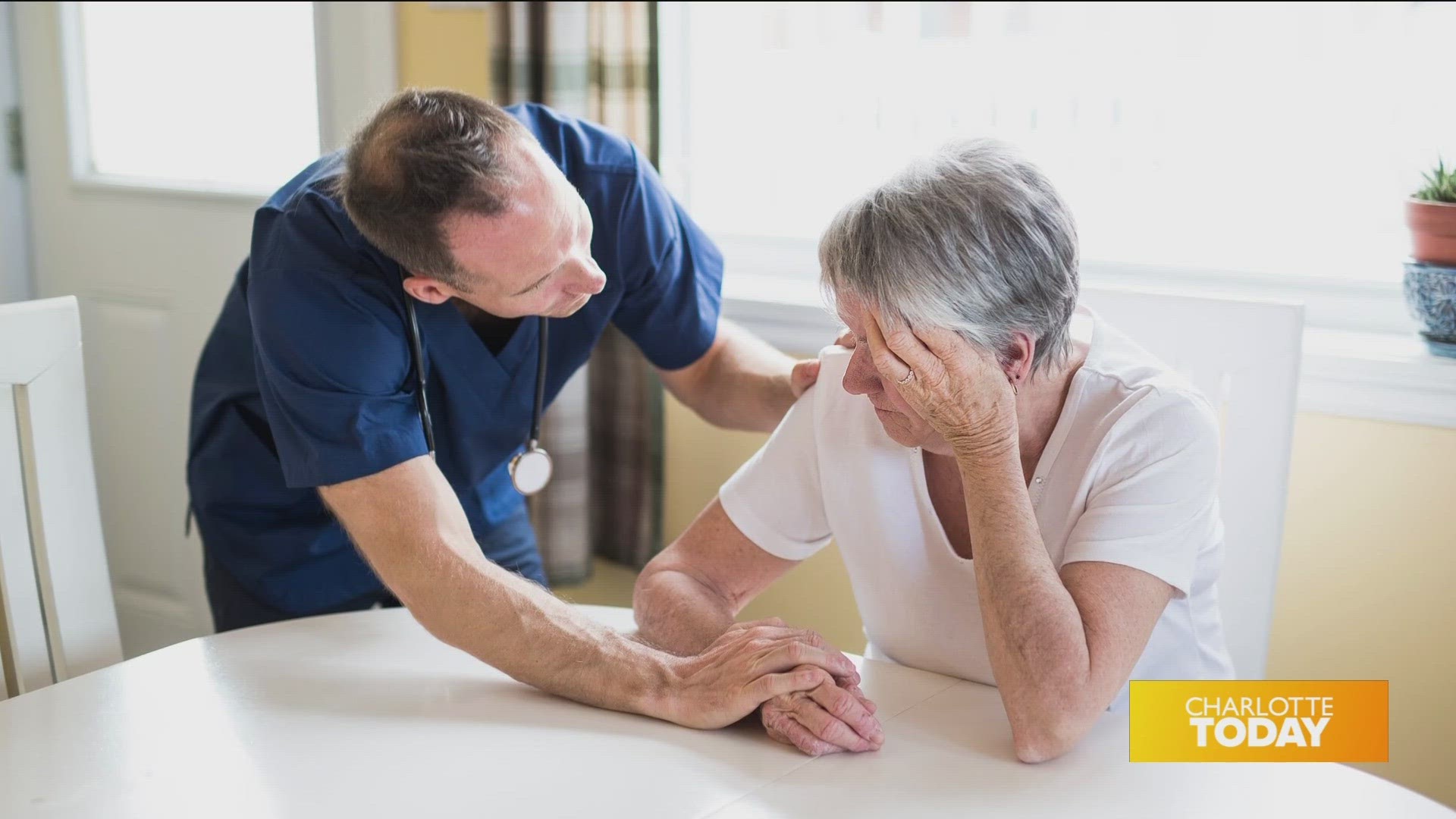CHARLOTTE, N.C. — The American Seniors Housing Association reports senior bullying occurs in every independent living community, assisted living or nursing home. In fact 10-20% of seniors have experienced some type of aggression. So what should you watch out for and what can you do? Here to help is friend of the show and aging expert Anthony Cirillo. “ Let’s identify bullying behavior” says Cirillo.
Bullying can be outlined as:
- Those mean-girls who teased others about their hair, their clothing and more in elementary school didn’t change, they just got older. The bully boys who stole lunch money have found a new way to intimidate.
It’s liken this to 7th grade with wrinkles. - The same types of personality dynamics, the same types of biases these individuals hold maybe as a product of the particular generation they grew up in don’t magically disappear as they grow older?”
- Name calling, teasing, insults, taunts, threats, sarcasm, pointed jokes, mimicking, rumor/gossip, dirty looks, ignoring someone are all verbal bullying behavior.
- For example an individual wheeling herself down the hall and having one of the members in the groups say “look at her going down the hall like she thinks she is better than us”.
- Or one bully decides who can sit at the dinner table, or sit with their group at crafts, play cards.
- The bully may even tell her circle not to socialize with another resident.
- The bully controls the group TV, and other group activities.
- Bullying may also turn physical such as hitting, punching, pushing, hair pulling, stealing or destroying property, tripping, intimidation and isolation.
What should you ask about or observe when choosing a community for mom or dad when it comes to bullying?
- Oftentimes you can’t see bullying on a quick schedule visit, You may want to review the state inspection reports.
- Ask family members, go online or the best way is to show up at odd hours asking for a tour; observing an activity; staying for a meal.
- Some seniors arrive with untreated (or sometimes even unknown to their caregivers) mental health issues, including dementia or Alzheimer's related illness. So ask about resident screening. Do they have a referral system set up to psychiatrists, psychologists or another type of clinician if mental health concerns really do become a problem.
- Ask if they hold anti-bullying or anger management classes for staff and residents.
- Ask do they have clear and easy processes around this behavior, for reporting bullying and for talking to family of the bully?
- Here are some basic policies - Everyone can sit where they want. Everyone has a right to come into the room. Everyone may travel the hall when they choose.
- Sometimes administration, nursing, activity staff please the bully at the expense of other residents because the bully makes a lot of noise and complains the most to the state survey team. Residents will sometimes bully the managers.
How do you identify the bullies in senior living while understanding some of the behavior could be impacted by their dementia/Alzheimer’s?
- Obviously the behaviors described above are inappropriate but they may be understandable if person has dementia.
- A person with dementia may wrongly perceive things as threatening so they resort to a more primitive response.
- A resident with dementia will scream if they don't want someone near them and not have a reason. They will not be consistent. They will not whisper.
- The person who has dementia does not plot and pull people into her bullying circle.
- Alternatively, a person with dementia can be the victim who is picked on.
For more information visit theagingexperience.com or Sagestream.live

